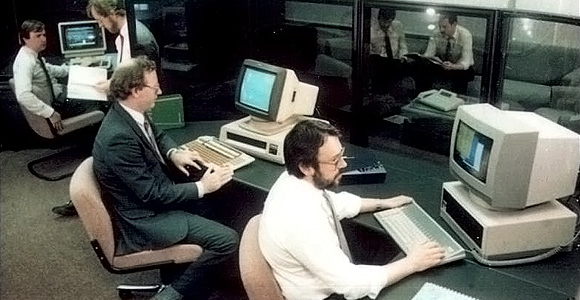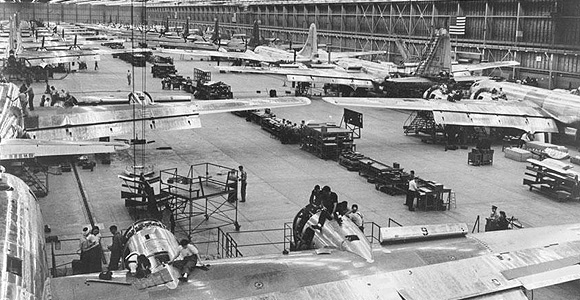
Pick up something off of your desk. That something was manufactured -- made -- using a process or series of processes. Maybe it was carved out of wood, cast in metal, or fired in ceramic. More likely it was molded in plastic or assembled by a robot in a pick-and-place electronics assembly line. Manufacturing and manufactured objects define our cultures and resource usage strategies, and influence the constitution of our societies. Changing the fundamental assumptions about how we should make objects could change the face of our society, and the problems it faces.
In the movie "Fight Club", Brad Pit warns Edward Norton "The things you own end up owning you." This anti-consumption sentiment was a major component of the fuel that drove "Fight Club" to cult status among millions of fans. But whether you buy to define yourself, or as Pitt would have us do, to sustain yourself "in the hunter-gatherer sense of the word", you cannot escape another truth: The things we make end up making us.
Put another way, each time a new type of object is used, or a new method of manufacture is employed, it cannot help but alter the society doing the using or the making. Here are two examples.
The most obvious sort of influence an object can have is in the sort of functionality it enables. The rise of computation in the modern world is a great illustration: Computers are designed to make computations, and today, we find that many of the computationally intensive tasks we used to have -- from ringing up groceries to searching for a book at the library -- are performed or assisted by computers. Since the change we see is directly related to the primary function of the device -- in this case computation -- these sorts of effects are often called first order effects. Most of the benefits we perceive technology to give us are first order effects.
Most objects or processes have not only first order, but second order effects. A second order effect is one where the the change that we see is not due to the primary function of the device or process, but due to some side effect of the primary function of the device or process. Brad Pitt's character in "Fight Club" consistently laments the first order effects of advertising -- "Advertising has us chasing cars and clothes, working jobs we hate, to buy shit we don't need" -- but rarely explores why advertising was developed in the first place. In fact, it is easy to see how mass consumption is a second order effect of mass production technologies like the assembly lines and factories put into place during world wars one and two. Mass production technologies produce the first order effect of lower variability, and lower manufacturing cost. This lower cost causes stronger cost competition (as opposed to durability or feature competition), which in turn leads to lower prices that need higher volumes to increase profits, and therefore greater product turnover to generate those volumes. A need for greater turnover leads to the development of marketing strategies for driving higher purchasing, which leads to a consumption-centered economy.
As we see in the second example, first order effects may be the reason we invent technologies, but second order effects are often the more impactful to society at large. They are also more difficult to predict, as we have seen in teasing apart the causes of problems as varied as global warming, species loss, habitat degradation, and water shortages in recent years. All of these problems are complex manifestations of second order effects of technologies we have developed to solve realatively unrelated problems.
This issue -- how to design to manifest first order effects while simultaneously optimizing second order effects -- is at the center of Humblefacture. In fact, it is at the core of it's name. Humility is not only about being cautious. Being humble is about something is acknowledging that the power you have comes at a price, and acting to ensure that the terms of that price are as fair and appropriate as possible. Humblefacture encourages exploration of the second order effects of manufacturing, in order to choose ways of making that use approriate amounts of energy, require fair amounts of resources, and exert just forces within participating societies. In short, Humblefacture seeks to ensure that the things we make make us into the society we want to be.
|
0
comments
]








0 comments
Post a Comment